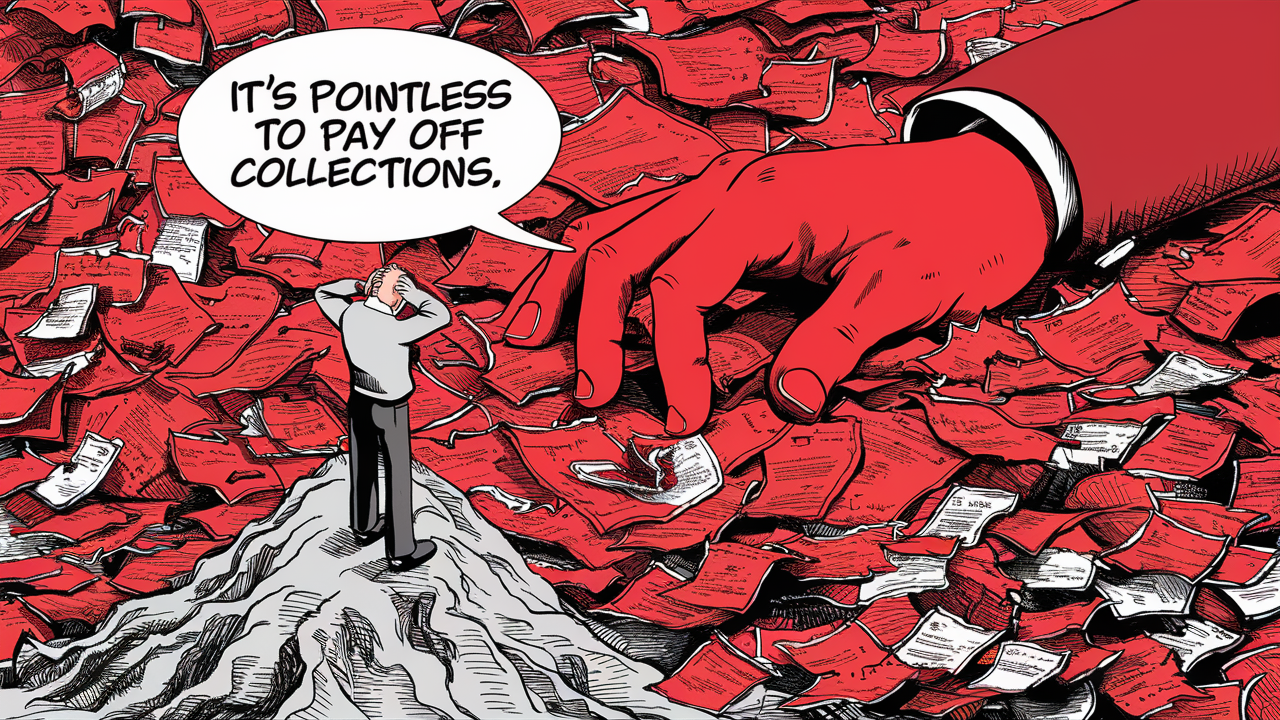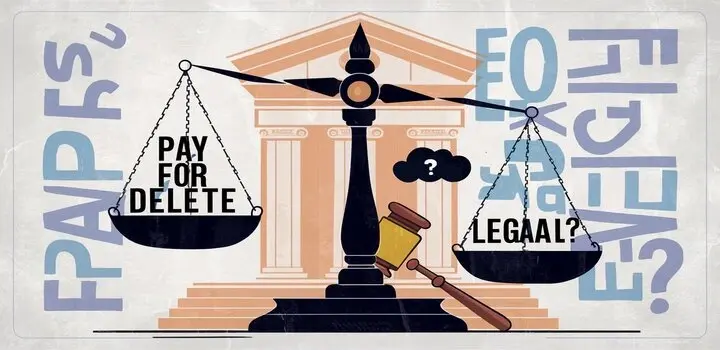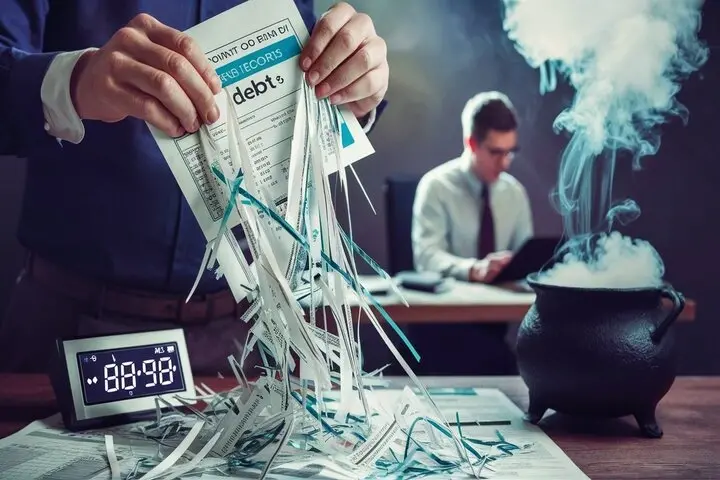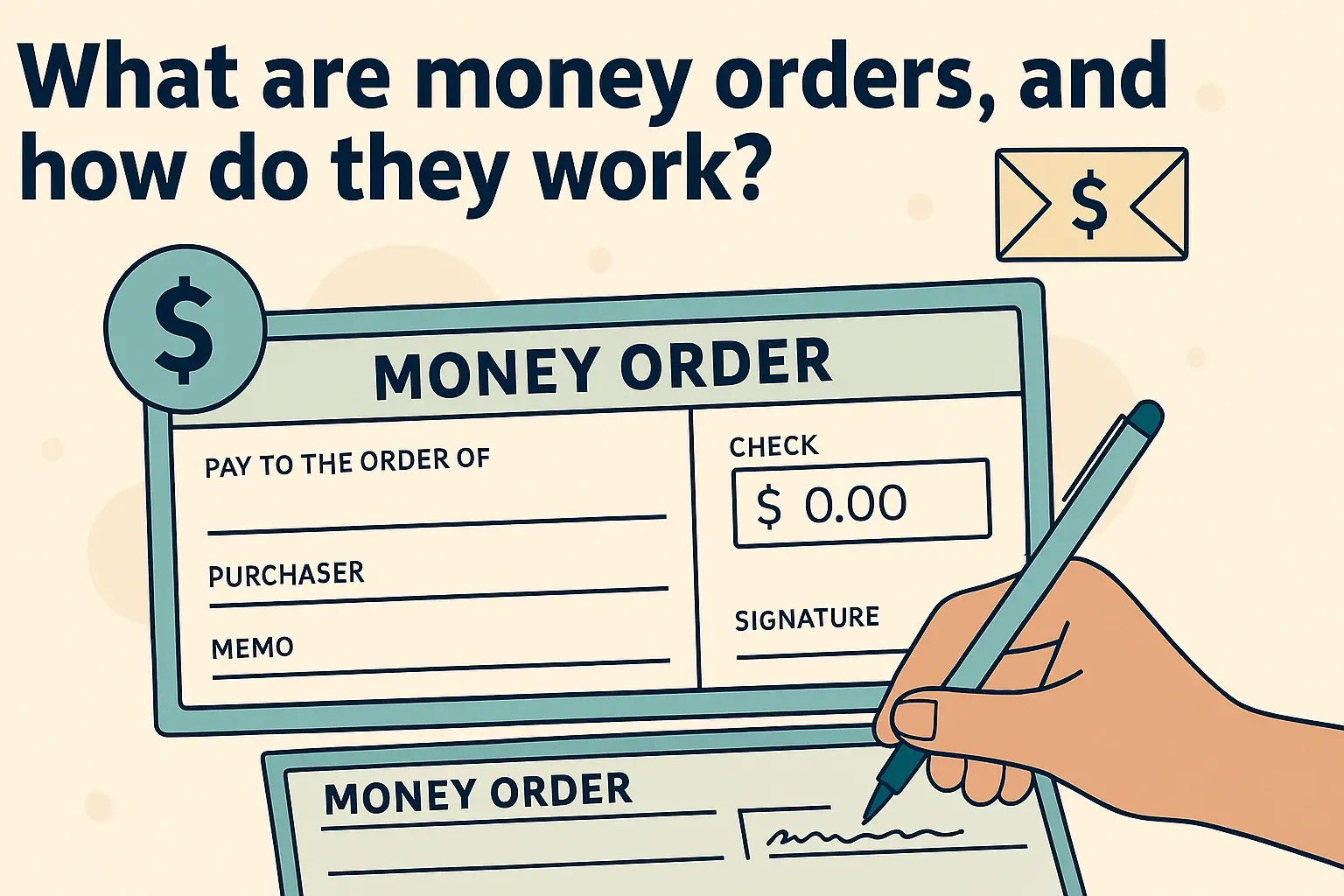-
Posted on: 24 Jul 2024

-
Dealing with debt collections can feel overwhelming. You might be wondering if paying off old collection accounts is even worth it. Does it actually improve your credit score, or is it just throwing good money after bad? The answer, as with most financial matters, is nuanced. This article will delve into the complexities of paying off collections, exploring the potential benefits, drawbacks, and strategic approaches to take.
Understanding Collection Accounts
Before deciding whether to pay off a collection account, it's crucial to understand what it is and how it impacts your credit.
A collection account arises when you fail to pay a debt to a creditor (e.g., a credit card company, a medical provider, a utility company). The original creditor, after attempting to collect the debt themselves, might sell the debt to a collection agency. These agencies specialize in pursuing unpaid debts. They often purchase debts for pennies on the dollar, hoping to profit by collecting the full amount (or a negotiated settlement).
Collection accounts negatively impact your credit score. They indicate to lenders that you have a history of not fulfilling your financial obligations, making you a higher-risk borrower.
How Collection Accounts Affect Your Credit Score
The impact of a collection account on your credit score depends on several factors, including:
- The age of the debt: Older debts typically have less impact than newer debts.
- The size of the debt: Larger debts tend to have a greater negative effect.
- The credit scoring model used: Different credit scoring models (e.g., FICO, VantageScore) weigh factors differently.
- Your overall credit profile: If you have a strong credit history otherwise, the impact of a single collection account might be less severe.
Importantly, even a paid collection account can negatively affect your credit score, although the impact may be less significant than an unpaid account. This is because the payment history remains on your credit report.
The Argument Against Paying Off Collections
Why would anyone question the value of paying off a debt? Here are a few common reasons why people might hesitate to pay off collections:
- It doesn't always significantly improve your credit score: Older collections, particularly those close to the statute of limitations, might not have a substantial impact on your credit score, even when paid. Paying them off might not be worth the effort and money.
- It can "re-age" the debt: In some cases, making a partial payment or acknowledging the debt can restart the clock on the statute of limitations, potentially allowing the debt collector to sue you for the full amount even if the original debt was nearing its expiration. (This is less common, but understanding your state's laws is crucial).
- It can be difficult to verify the debt: Some collection agencies might not have the proper documentation to prove you owe the debt. Paying without verification is risky.
- The debt might be uncollectible due to the statute of limitations: Each state has a statute of limitations on debt. Once this period expires, the debt collector can no longer sue you to collect the debt, although they can still attempt to contact you.
The Argument For Paying Off Collections
Despite the potential drawbacks, there are valid reasons to consider paying off collection accounts:
- Peace of mind: Knowing you've settled your debts can significantly reduce stress and improve your overall well-being.
- Negotiating a settlement: You might be able to negotiate a lower payment amount than the full debt, especially if the debt is old or you have limited financial resources.
- Removing the collection account from your credit report (Pay-for-delete): While not guaranteed, some collection agencies might agree to remove the collection account from your credit report in exchange for payment. This is the ideal outcome.
- Qualifying for loans or credit: Some lenders are hesitant to approve loans or credit lines for individuals with outstanding collection accounts. Paying off the debt can improve your chances of approval.
- Moral obligation: You incurred the debt, and paying it back is the ethical thing to do, regardless of its impact on your credit score.
The Impact on Different Credit Scoring Models
It's important to note that the impact of paying off collections can vary depending on the credit scoring model used by lenders.
- FICO Score 9 and newer: These newer FICO scoring models generally disregard paid collection accounts, meaning they won't negatively impact your score. However, unpaid collection accounts will still have a negative effect.
- Older FICO Scores (e.g., FICO 8): These models still consider paid collection accounts, although the impact might be less severe than unpaid accounts.
- VantageScore 3.0 and 4.0: Like newer FICO scores, VantageScore models generally ignore paid collection accounts.
Because lenders use a variety of credit scoring models, it's difficult to predict exactly how paying off a collection account will affect your credit score. However, generally speaking, newer scoring models are more forgiving of paid collections.
Strategies for Dealing with Collection Accounts
Before you decide whether to pay off a collection account, consider these strategies:
1. Validate the Debt
Before making any payments, request written validation of the debt from the collection agency. This is your right under the Fair Debt Collection Practices Act (FDCPA). The debt validation letter should include:
- The name of the original creditor
- The amount of the debt
- An explanation of the debt
- Proof that the collection agency has the legal right to collect the debt
If the collection agency cannot provide sufficient validation, you are not obligated to pay the debt, and you can dispute the collection account with the credit bureaus (Experian, Equifax, and TransUnion).
2. Check the Statute of Limitations
Determine the statute of limitations for debt collection in your state. If the statute of limitations has expired, the collection agency cannot sue you to collect the debt. While they can still attempt to contact you, you have the right to request that they cease all communication.
Keep in mind that acknowledging the debt or making a payment can restart the statute of limitations in some states. Consult with an attorney to understand the laws in your specific location.
3. Negotiate a Settlement
If the debt is valid and within the statute of limitations, consider negotiating a settlement with the collection agency. You can often negotiate a lower payment amount than the full debt, especially if you offer a lump-sum payment.
When negotiating, be sure to get the agreement in writing before making any payments. The agreement should clearly state the amount you will pay, the date the payment is due, and that the collection agency will consider the debt settled in full upon receipt of the payment.
4. Consider a "Pay-for-Delete" Agreement
The most desirable outcome is a "pay-for-delete" agreement. This involves negotiating with the collection agency to remove the collection account from your credit report in exchange for payment. While some collection agencies are hesitant to agree to this, it's worth asking.
Again, ensure the agreement is in writing before making any payments. The agreement should explicitly state that the collection agency will remove the collection account from your credit report upon receipt of the payment.
5. Consult with a Credit Counselor or Attorney
If you're struggling to manage your debt or dealing with aggressive collection agencies, consider seeking professional help. A credit counselor or attorney can provide guidance and support to help you navigate the debt collection process and protect your rights.
When Paying Off Collections Makes Sense
Paying off collections is generally a good idea in these situations:
- You're applying for a mortgage or other significant loan: Lenders often scrutinize credit reports and might require you to resolve outstanding collection accounts before approving your application.
- The debt is relatively recent and having a significant impact on your credit score: Paying off the debt, especially if combined with a pay-for-delete agreement, can provide a noticeable boost to your credit score.
- You can negotiate a favorable settlement or pay-for-delete agreement: This allows you to resolve the debt for less than the full amount while also potentially improving your credit score.
- The debt is valid and you have the financial resources to pay it off: Paying off a legitimate debt can provide peace of mind and prevent further collection efforts.
When Paying Off Collections Might Not Be Worth It
Paying off collections might not be the best strategy in these situations:
- The debt is very old and has little impact on your credit score: If the debt is approaching the statute of limitations or has already fallen off your credit report, paying it off might not be worth the effort.
- The debt is not valid or the collection agency cannot provide proper validation: You are not obligated to pay a debt that cannot be verified.
- You are facing more pressing financial obligations: If you're struggling to pay for essential expenses, such as rent, food, and utilities, prioritizing those obligations is more important than paying off old collection accounts.
- Paying the debt would "re-age" the debt and allow the collection agency to sue you: Consult with an attorney to understand the laws in your state before making any payments on old debts.






